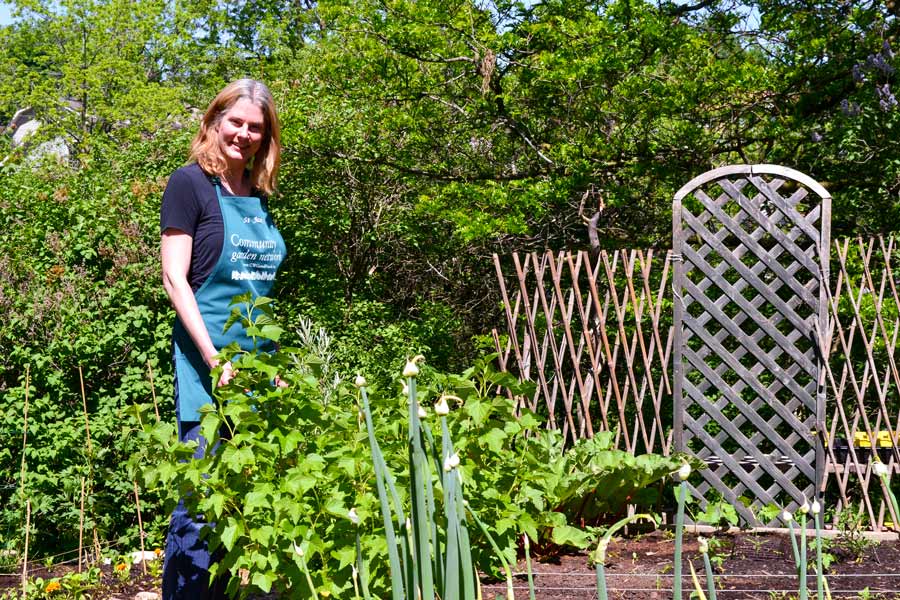WELLINGTON COUNTY – It will be tougher to build community at community gardens this year, what with physical distancing and all.But community gardens are still a going concern this year and providing a vital service, organizers say.
Early on in the pandemic, community gardens were given the green light to proceed.
“People are definitely more into gardening this year,” said Daisy Moore, a horticulturist and driving force behind the Centre Wellington Community Garden Network.
“I think it’s something to do as a family when you’re stuck at home. But there’s also this sense of food security. You have some control when you grow your own food.”
St. James Anglican Church in Fergus was the first to establish a community garden in Centre Wellington, back in 2011.
“When that happened, people noticed and wanted more, and the network grew,” Moore said. There are currently eight community gardens in Fergus and Elora that are registered with the network.
“Each community garden operates in its own way but the network gets some funding and can provide compost and in some cases plants, like asparagus or currant bushes, to kick-start the gardens,” Moore said.
Tammy Rutherford, who oversees the community garden at St. James, said the idea came about there after discussion about parking, of all things.
“The idea was we could make a parking lot here,” she said of the lot beside the church on Queen Street East.
“Someone at the meeting thought there was a better way to use this land – community gardens. It’s become more and more successful every year.”
There are 16 plots at St. James, about eight by eight feet each and gardeners can plant what they want in their plot.
Rutherford said originally, plots went to clients of the Centre Wellington Food Bank or Grand Abilities, “but we’ve broadened our scope. Now we have seniors who moved to condos and miss their backyard garden. Or people who rent an apartment and don’t have their own land.
“There’s a real mix of people who have garden plots here, and that’s part of the attraction too.”
Right now, because of COVID-19, gardeners are asked to bring their own tools and to come back later if there are lots of people in the garden.
But St. James received some funding this year and purchased a hand-washing station and a new lock for its garden shed. Soon gardeners will be able to borrow tools from the shed as long as tools are sanitized after use.
“COVID-19 has added some complications, for sure, but people are eager to be growing food,” Rutherford said.
Linda Mae Ogilvie said the community garden at Melville United Church began as an outreach project of the youth group at the church.
“One hundred per cent of what we grow goes to the Centre Wellington Food Bank,” she said.
In a normal year, Melville would allow the Early Years Centre that operates from the church to have a plot as well, so children can try their hand at planting and caring for vegetables.
“They are not operating, so we’ve planted all the bed,” Ogilvie said.
Moore said this year there are many homeowners with large properties who are growing food for the community and encourage people to help themselves when it’s time to harvest.
“But the magical thing for me is the community-building,” Moore said.
“Gardeners get together and teach each other. You can’t do better than that.”




